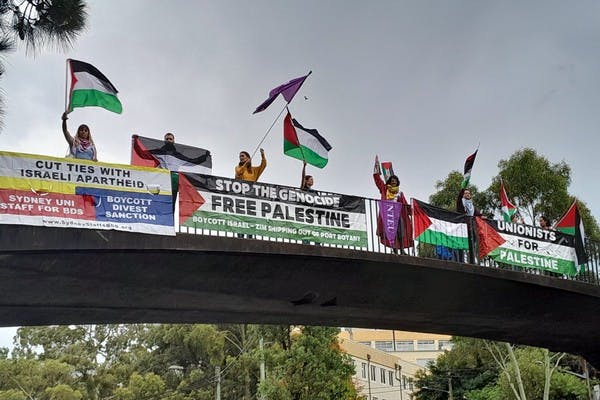Published: 18 December 2023
Last updated: 5 March 2024
ITTAY FLESCHER shares the music Israelis are making as they deal with the tragedy of October 7 and the subsequent war with Hamas.
Over the past two months, I have been more grateful for the escape of music than at almost any period of my life.
I woke early on October 7 with a sweet and simple song in my head, Pshutim (Simple) by Akiva Turgeman.
All I ask… Protect our innocence,
With a home, a warm pot on the fire,
A warm hug, and the laughter of children
I posted a link with an image of my sukkah on my Instagram, thinking it a fitting tribute to the end of the festival of Sukkot.
A few minutes later, I received the first news alert about a break in the Gaza fence. An hour later I was in the shelter with my kids as rockets were fired on Jerusalem. A day later, I was glued to the news in horror. A month later, I was struggling to hold together a peace organisation in crisis, writing a book, creating a podcast, and trying to make sense of the incomprehensible.
Two months later, my life, and that of many Jewish people in Israel and around the world, is filled with deep nostalgia for the simplicity described in Akiva’s song.
Radio stations in Israel have stopped playing the plastic pop music that used to flood our airwaves. Not a single Taylor Swift song features in the top 50 Spotify list of Israel now. In fact, most English songs have disappeared, replaced with wistful Hebrew ballads or songs written specifically for this war.
Some of the songs are literal responses to the experiences Israelis are now processing. Tirkedi (Dance) by Osher Cohen and Winter 23 by Odeya were both written in response to the massacre at the Nova Dance party where 364 Israelis were killed on October 7.
Others channel more general nationalism or patriotism. Eyal Golan’s Am Yisrael Chai, a rousing call for protection from God, unity and national pride has shot into the Top Ten.
More disturbing is Charbu Darbu (Swords and Strikes) by Ness and Stilla, a catchy hip-hop anthem being played on rotation across the country and performed at IDF bases around the country. The lyrics, which have been widely condemned in many Arab countries, directly address the Palestinians of Gaza and celebrities who support them, including Gigi Hadid, Dua Lipa and Mia Khalifa, with the message that “We’ve brought the entire army against you and we swear there won’t be forgiveness, sons of Amalek.”
The power of music in Israel’s past wars is well understood. The anthem of 1967 was Naomi Shemer’s hit song Yerushalayim Shel Zahav (Jerusalem of Gold). According to Israeli music historian Dan Almagor, the 1967 ballad was played constantly on the radio throughout the period leading up to the Six-Day War after Egypt closed the Straits of Tiran and had a profound effect on the course of the war.
“Had it not been for the song it’s doubtful that there would have been such a willingness to charge and conquer the city. This was before Gush Emunim and messianism. This song has extraordinary historic import. Paratroopers at the Western Wall didn’t pray. They sang this song,” he wrote.
If I had to make a guess, I feel it’s quite likely that the song most associated with this war will be LaTzet Mi Dikaon (Emerging from Depression) by Yagel Oshri. It was actually written two months before the war, in response to the songwriter’s experience of recovery from depression but it has resonated deeply with national grief and the desperate need for optimism.
Israelis are all grieving over what happened on October 7 and we are also in anticipatory grief about the suffering that’s yet to come, for our loved ones serving in Gaza and on the northern border, for civilians who may be victims of terror or rocket attacks, for so many hostages who may never again see the light of day. We are in grief both over the cost of the battle we may win, and the war we may lose. This is the anthem that we are seeking.
Good days will come, I promise
Good days will come
Even in the dark hours of the night
There will always be a small star that will light for you
Light you and the way home
It’s always the darkest before sunrise
A million trains racing all the way to Australia
You’re looking far for what you have
under your nose, every obstacle is a medal
You get up and fall, but in your own way
One of the most beautiful ways this song has appeared on Israeli social media is in the background of videos of soldiers surprising their wives and children as they return from the front. It’s hard to have a dry eye after watching clips like this.
May they all return home safely, and may the lyrics that introduce the chorus be true:
Good days will come, I promise
Good days will come
LISTEN MORE
Music of Israel’s War in Gaza (Spotify)




